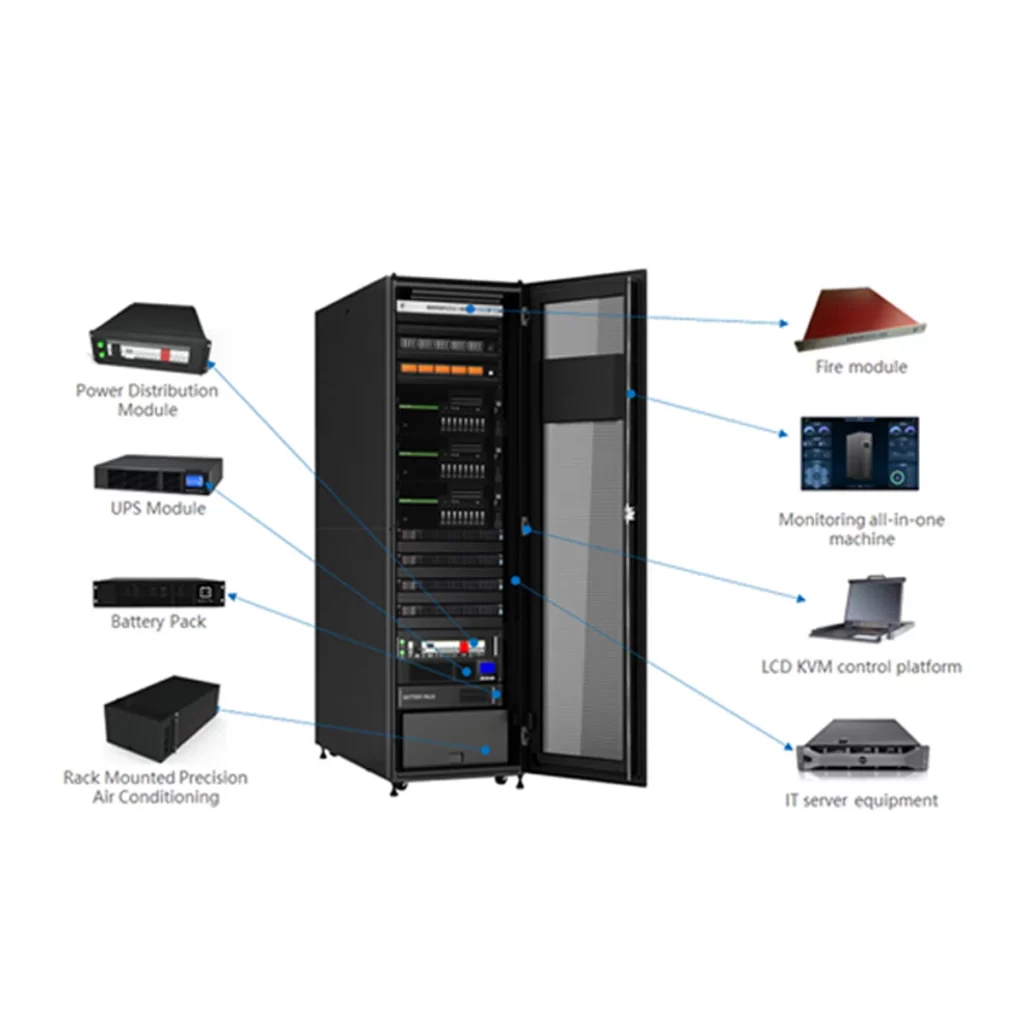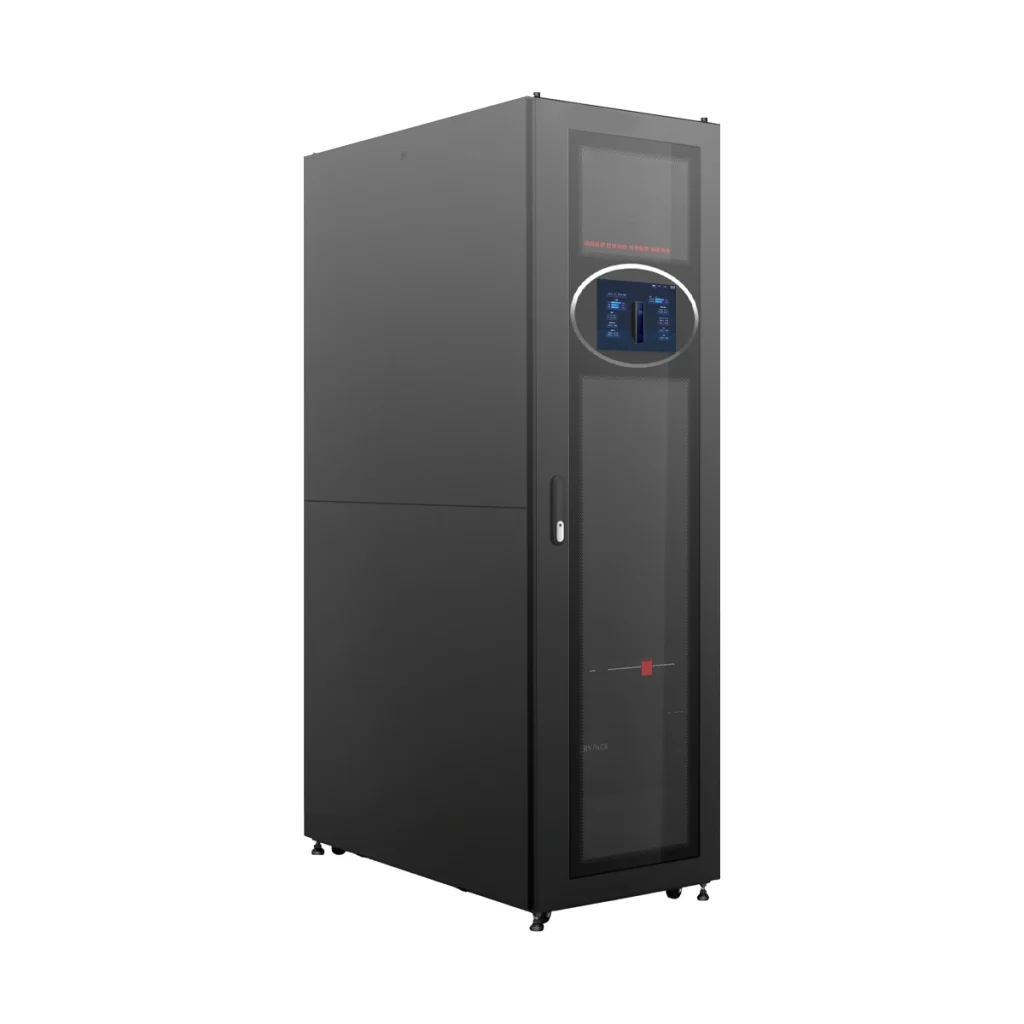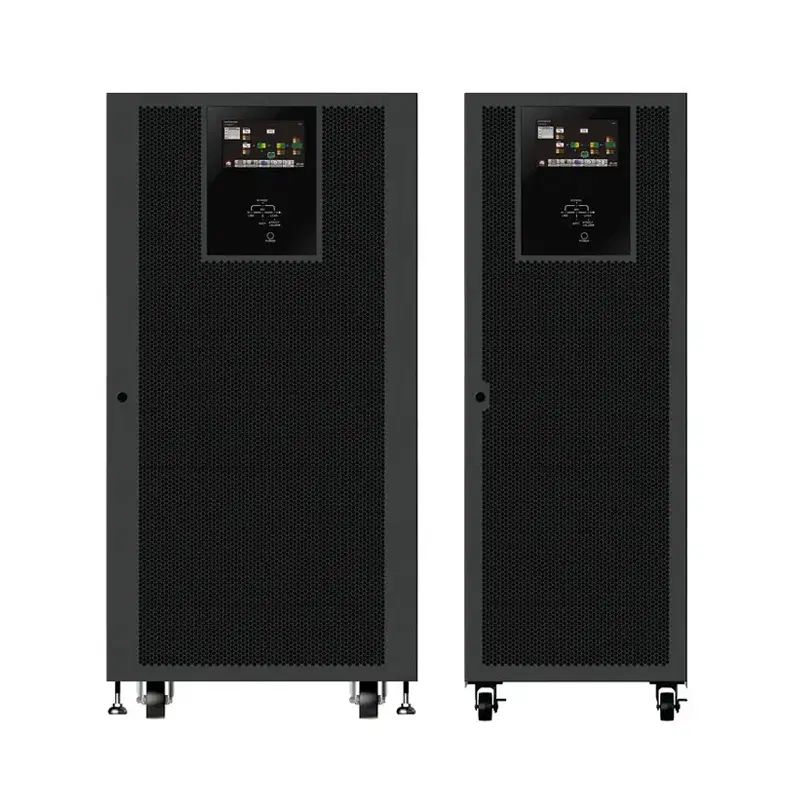O que é um Micro Data Center?
Data de lançamento: 06/11/2025
Com a crescente demanda por infraestrutura de TI mais rápida, confiável e escalável, empresas e organizações buscam maneiras inovadoras de otimizar suas soluções de data center. Uma dessas inovações é o Micro Data Center (MDC). Diferentemente dos data centers tradicionais de grande escala, os Micro Data Centers são compactos, eficientes e projetados para oferecer recursos de computação de alto desempenho em ambientes menores e localizados. Essas soluções de pequena escala têm se mostrado essenciais para atender às necessidades de computação de borda, IoT e aplicações remotas.
Neste artigo, exploraremos o que é um Micro Data Center, seus principais componentes, recursos essenciais, vantagens principais e como ele se encaixa no contexto mais amplo da computação de borda e arquiteturas distribuídas. Além disso, vamos nos aprofundar em... Solução de Micro Data Center da Soetech e suas contribuições para a indústria.
O que é um Micro Data Center?
Um micro data center (MDC, na sigla em inglês) é uma instalação de computação autônoma, modular e escalável que inclui toda a infraestrutura de TI essencial para suportar cargas de trabalho de missão crítica. Normalmente menores em tamanho em comparação com data centers tradicionais, os MDCs são projetados para oferecer alta disponibilidade, baixa latência e recursos de processamento em tempo real, sendo ao mesmo tempo eficientes e econômicos.
Os micro data centers podem ser implantados em diversos ambientes, tais como:
- Locais remotosOnde a construção de centros de dados de grande escala pode não ser viável ou economicamente vantajosa.
- Computação de bordaPara processar dados próximos à fonte, reduzindo a dependência de serviços de nuvem centralizados.
- Redes distribuídasEm arquiteturas distribuídas onde o processamento e o armazenamento precisam estar mais próximos dos usuários finais ou dispositivos.

Componentes-chave de um micro data center
Os micro data centers são compostos por diversos componentes essenciais que trabalham em conjunto para fornecer um ambiente computacional totalmente funcional. Os principais componentes de um micro data center incluem:
1. Infraestrutura de Computação
A infraestrutura de computação é a espinha dorsal de qualquer centro de dados. No caso de MDCs (Centros de Dados Multidispositivos), isso normalmente inclui servidores, CPUs e GPUs que processam dados para aplicações locais ou remotas. Esses componentes são compactos e projetados para eficiência energética, garantindo desempenho ideal em um formato reduzido.
2. Sistemas de armazenamento
O armazenamento é um aspecto crítico dos data centers multiusuário (MDCs) e geralmente envolve soluções de armazenamento escaláveis e de alto desempenho que suportam replicação, backup e recuperação de dados. Os MDCs frequentemente utilizam unidades de estado sólido (SSDs) para tempos de acesso mais rápidos e menor consumo de energia.
3. Componentes de rede
A infraestrutura de rede é essencial para conectar o Micro Data Center a outras infraestruturas ou para suportar a comunicação dentro do próprio MDC. Isso inclui switches de rede, roteadores, firewalls e balanceadores de carga. Os MDCs frequentemente utilizam SDN (Redes Definidas por Software) para otimizar o gerenciamento de rede e reduzir custos.
4. Sistema de refrigeração
O resfriamento eficiente é vital para manter o desempenho e a longevidade do hardware. Os data centers geralmente são equipados com unidades de ar condicionado. resfriamento líquidoou soluções de gerenciamento térmico para garantir que os servidores e outros componentes permaneçam dentro das faixas de temperatura ideais.
5. Fonte de alimentação e reserva
Os micro data centers exigem uma fonte de alimentação confiável e redundante. Isso inclui sistemas de alimentação ininterrupta (UPS), geradores e baterias para garantir que o micro data center possa operar continuamente, mesmo durante quedas de energia.
6. Sistemas de Gestão e Monitoramento
Os data centers multiusuários (MDCs) exigem sistemas de gerenciamento inteligentes para monitoramento, controle e manutenção remotos. Isso inclui soluções de software que podem fornecer relatórios de status em tempo real, métricas de desempenho e alertas de segurança para garantir o bom funcionamento da infraestrutura.
Principais características dos micro data centers
As principais características dos micro data centers os tornam uma opção atraente para empresas que buscam soluções de TI escaláveis, flexíveis e com boa relação custo-benefício. Algumas dessas características principais incluem:
1. Modularidade e escalabilidade
Os micro data centers são projetados com modularidade em mente, o que permite que as empresas dimensionem sua infraestrutura conforme necessário. Você pode começar com uma configuração pequena e expandir o sistema à medida que a demanda aumenta. Essa flexibilidade é ideal para empresas com cargas de trabalho crescentes ou flutuantes.
2. Integração de Computação de Borda
Os data centers multiponto (MDCs) são inerentemente adequados para aplicações de computação de borda, pois permitem que os dados sejam processados mais perto do ponto de origem. Isso é particularmente útil para setores como IoT, veículos autônomos e manufatura, onde a baixa latência é essencial.
3. Eficiência Energética
Devido ao seu tamanho reduzido e propósito específico, os micro data centers são otimizados para eficiência energética. Muitos MDCs incorporam tecnologias como refrigeração líquida, sistemas de resfriamento gratuito e componentes de baixo consumo de energia para reduzir o consumo de energia e minimizar a pegada de carbono.
4. Gestão Remota
Os data centers móveis (MDCs) podem ser gerenciados remotamente, o que representa uma vantagem significativa para empresas que operam em ambientes remotos ou distribuídos. Por meio de ferramentas de monitoramento baseadas em nuvem, os administradores podem acompanhar o desempenho, detectar problemas e realizar a solução de problemas sem precisar estar no local.
5. Segurança
Devido à sua natureza compacta e localizada, os micro data centers costumam ser mais seguros do que os data centers maiores e centralizados. Os micro data centers incorporam segurança física (como controles de acesso biométricos), bem como medidas de segurança de rede, como firewalls, criptografia e redundância de dados.
Principais vantagens dos micro data centers
Os micro data centers oferecem diversas vantagens em relação aos data centers tradicionais de grande escala, principalmente em termos de flexibilidade, eficiência e desempenho. Vamos explorar os principais benefícios:
1. Latência reduzida
Os data centers móveis (MDCs) podem reduzir a latência processando dados localmente, em vez de depender de serviços de nuvem centralizados. Isso é particularmente valioso para aplicações que exigem processamento de dados em tempo real, como veículos autônomos, cidades inteligentes e sistemas de saúde.
2. Eficiência de custos
Os data centers multiusuário (MDCs) geralmente são mais acessíveis para implantar e manter do que data centers maiores. A natureza modular dos MDCs permite começar com uma infraestrutura pequena e expandir apenas quando necessário. Esse modelo de pagamento conforme o uso ajuda as empresas a evitar gastos de capital desnecessários.
3. Implantação mais rápida
Como os micro data centers são pré-configurados e modulares, sua implantação é rápida. Isso é especialmente vantajoso para empresas que buscam expandir sua infraestrutura com agilidade, como aquelas que operam em mercados emergentes ou locais remotos.
4. Maior confiabilidade
Os data centers multilocais (MDCs) oferecem alta disponibilidade por meio de fontes de alimentação e sistemas de refrigeração redundantes. A natureza localizada dos MDCs também os torna menos suscetíveis a interrupções em larga escala que podem afetar data centers tradicionais.
5. Computação de borda e integração da IoT
Os data centers móveis (MDCs) são ideais para computação de borda e aplicações de IoT, pois permitem que as empresas processem dados perto da fonte, em vez de enviá-los para uma nuvem centralizada. Essa descentralização melhora o desempenho geral de dispositivos e sistemas conectados.
Valor dos micro data centers na computação de borda e em arquiteturas distribuídas
Os micro data centers desempenham um papel fundamental no desenvolvimento da computação de borda e de arquiteturas distribuídas. Com o aumento da conectividade de dispositivos e a geração de grandes volumes de dados, torna-se inviável enviar todos esses dados para servidores centrais para processamento. Ao implantar micro data centers na borda das redes, as empresas podem:
- Processar dados localmenteReduzir a latência e possibilitar a tomada de decisões em tempo real.
- Melhorar a eficiência da largura de bandaDescarregar o processamento de dados dos servidores centrais reduz o congestionamento na rede.
- Suporte a dispositivos IoTOs micro data centers podem funcionar como um hub para dispositivos IoT, fornecendo a capacidade computacional necessária para análise e processamento de dados.
Solução de Micro Data Center da Soetech
A Soeteck é líder no fornecimento de soluções avançadas de micro data centers projetadas para uma ampla gama de setores. Os micro data centers da Soeteck são conhecidos por sua eficiência energética, design modular e escalabilidade, tornando-os ideais para empresas que buscam soluções de computação de borda localizadas.
Principais características da solução MDC da Soeteck:
- Soluções pré-configuradas e prontas para uso Para implantação rápida.
- Computação de alto desempenho Com suporte para CPUs, GPUs e sistemas de armazenamento.
- Sistemas integrados de refrigeração e energia Para garantir confiabilidade e eficiência.
- Capacidades de gerenciamento remoto Para facilitar o monitoramento e o controle.
Ao escolher a Soetech solução de micro data centerAs organizações podem aproveitar uma infraestrutura de ponta que atenda às demandas de aplicativos modernos e prepare suas capacidades de TI para o futuro.


